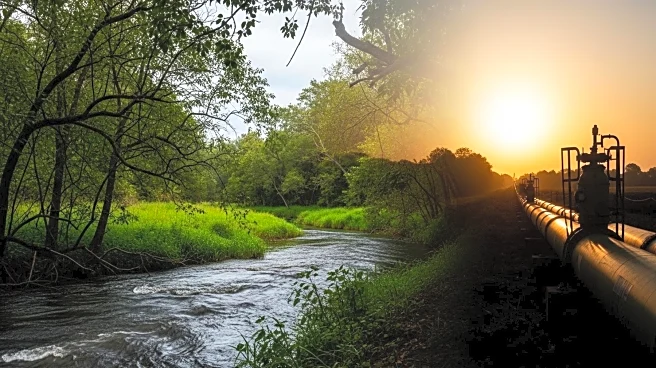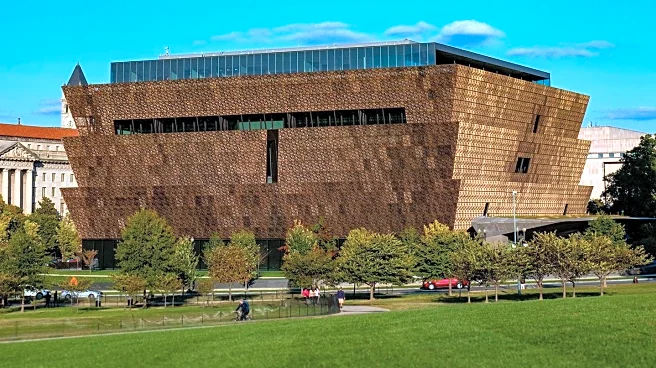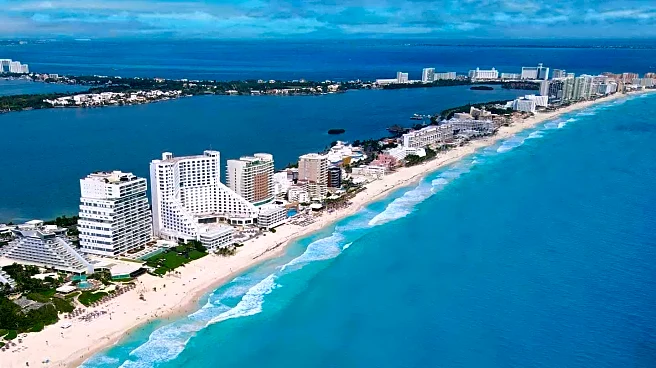What's Happening?
The Albanese government has approved the extension of the North West Shelf gas project in Australia until 2070. This decision includes conditions aimed at protecting over one million pieces of ancient Indigenous rock art located near the project site. The extension allows Woodside to continue operating its Karratha plant, which processes and liquefies gas for export. The approval has sparked significant backlash from climate campaigners and conservation groups, who describe the project as a 'carbon bomb' that contradicts global climate goals. The federal environment minister, Murray Watt, has imposed 48 conditions on Woodside, focusing on monitoring and reducing industrial emissions, including nitrous oxide, to protect the rock art. Despite these measures, critics argue that the emissions from the gas plant are damaging the rock art, although a state government-backed monitoring program has largely dismissed these concerns.
Why It's Important?
The extension of the North West Shelf gas project has significant implications for both environmental policy and Indigenous heritage protection. The decision has been criticized for potentially undermining Australia's commitment to climate change mitigation, as the project is expected to contribute substantially to greenhouse gas emissions. This move could also affect Australia's international standing, as it may face legal challenges for failing to protect the climate system. Additionally, the decision has sparked outrage among Indigenous groups, who view it as a betrayal of their cultural heritage. The controversy highlights the ongoing tension between economic development and environmental and cultural preservation, raising questions about the government's priorities and its commitment to sustainable practices.
What's Next?
The decision to extend the gas project is likely to lead to further legal and political challenges. Indigenous groups and environmental organizations may seek legal recourse to protect the rock art and challenge the project's environmental impact. The government may also face increased pressure from international bodies and climate advocates to reconsider its approval. As the project progresses, monitoring and compliance with the imposed conditions will be crucial to mitigate its environmental impact. The situation underscores the need for a balanced approach that considers both economic benefits and the preservation of cultural and environmental resources.
Beyond the Headlines
The extension of the North West Shelf gas project raises broader ethical and cultural questions about the treatment of Indigenous heritage sites in the face of industrial development. The decision reflects a complex interplay between economic interests and the rights of Indigenous communities to protect their cultural landscapes. It also highlights the challenges of achieving climate goals while maintaining economic growth, particularly in resource-dependent regions. The controversy may prompt a reevaluation of policies related to Indigenous heritage protection and environmental sustainability, potentially influencing future decisions in similar contexts.









